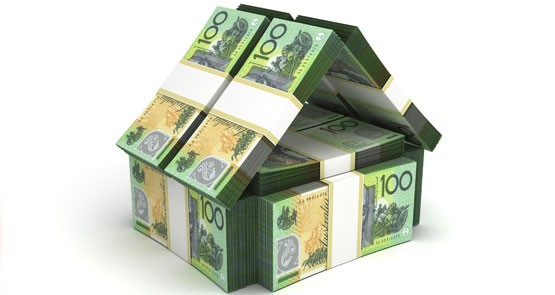
Overall levels of home ownership are on a gradual decline in Australia, but the declines are sharp among younger households and people on low incomes. Generous government tax breaks for property investors are contributing to this decline in home ownership and an increasingly unequal housing market.
Investors benefit from a 50% discount on capital gains tax (at a cost to the government’s budget of $4.4 billion per year) and negative gearing (costing $2.4 billion a year). Grattan Institute’s latest report — Renovating housing policy — finds that these tax breaks not only fail to produce new housing, they are leading investors to bid up the prices of existing housing because of the tax benefits on offer. More first-home buyers are locked out of the market as a result.
Grattan’s report proposes that the Commonwealth gradually ease these tax breaks, in conjunction with steps that stimulate new housing supply. These changes include reforming state and local planning systems so residents, developers, governments and councils can achieve a long-term, negotiated approach to development.
But these reform proposals to produce more housing and bring home ownership within the grasp of more Australians prompted a spirited defence of the status quo last week. An article by Nicola Trotman published in Crikey last week quotes real estate industry players whose views are in part based on two myths.
Peter Bushby from the Real Estate Institute of Australia claims that tax concessions for investors help provide rental accommodation. But only 5% of money loaned for investment in housing in Australia goes towards building new housing — 95% goes to bidding up the price of existing housing. If new houses aren’t getting built, one more taxpayer-subsidised investment property means one fewer owner-occupied home.
Historically low rental vacancy rates also show there is a shortage of rental properties, according to, among others, the Reserve Bank. And rents have gone up much more quickly than average wages over the last decade. If a discounted rate of capital gains tax and negative gearing are supposed to be getting new housing built, they’re doing a terrible job.
Both Bushby and Terry Ryder, of Hotspotting.com.au, also state that restricting negative gearing in the mid-1980s caused the rental housing market to stall. Not true. In the two years from September 1985 in which negative gearing was restricted, lending for housing investment increased by 42%. Only two cities — Sydney and Perth — experienced increased growth in rents over this period, despite restrictions on negative gearing applying nationwide. And Sydney and Perth had been experiencing unusually low vacancy rates prior to the policy change. Growth in rents actually slowed in Melbourne, and other capital cities were stable.
Reform of tax concessions for property investors such as discounted capital gains tax and negative gearing won’t — and shouldn’t — happen overnight. But it’s important to be clear and honest about the consequences of these policies.
For most of the 1980s, a home buyer needed to save around a full year’s average income as a deposit for median priced housing. Now the corresponding deposit is roughly four times average annual income. Home ownership is heading out of reach for increasing numbers of Australians, and as Grattan’s report shows, tax breaks for property investors have contributed to the problem.
*Jane-Frances Kelly is cities program director for the Grattan Institute; Paul Donegan is a Grattan senior associate. This article was originally published at Property Observer.







We need an IMMEDIATE suspensions of any foreigners buying rural land. There are cases where they send the produce directoy to docks an off shore without any transaction and tax paid here.
Also same with residential, they come and decay urban areas and turn our suburbs into foreign gettos.
Wonderful contribution Suzanne. Great to have you back!
And now, back on topic…………….
Yes, the current tax set-up is boneheaded, perverse, ridiculous and basically a rort for the well off.
It serves no social purpose, and of course the fact that only 5% of investment goes to new housing is just another fact to be ignored by the spruikers.
Of all current government tax settings it’s hard to say which is the worst, but negative gearing and the capital gains on only half the profit must be close to the top of the list.
Of course, Costello’s superannuation tax gift to the super-wealthy remains the worst of all publi policy decisions of the last 25 years.
I think investors snapping up property greatly outnumber these “foreign gettos” you mention of. The ones who could afford our property these days either live in them or lease them out. The so called “empty holiday houses” highlighted by the current affair shows make up only a tiny minority and is pretty much a media beatup (I don’t recall our newspapers even bothering with this issue).
@Raaraa afraid to say you are wrong
Foreigners are buy up huge tracks of rural lands. Arabs, Chinese, Indians, Canadians. The former three ship live sheep etc to docks and grain etc and pay no tax here.
The Chinese are buying up huge residential and commercial portfolios with cash from China and going straight back home.
I have been to commerical auctions and see three groups of Chinese bidding (and buying) land ata KFC outlet with a 20 years lease in western system for terrible yields. They dont care.
Politicians are asleep
I see the change of government hasn’t improved a certain poster’s grammar or spelling.
Back to the subject: investors would continue to buy property if negative gearing was axed (although not if the tax break went, too). The property market still remains a fairly safe place to put one’s money if homework is done prior to purchase.